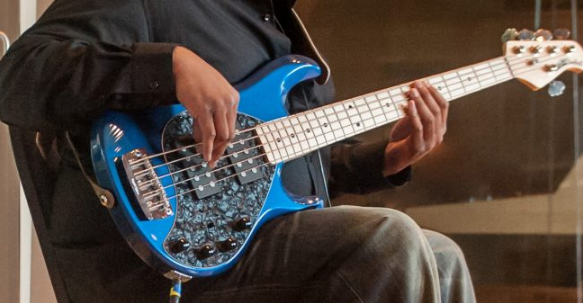Products Category
- FM Transmitter
- 0-50w 50w-1000w 2kw-10kw 10kw+
- TV Transmitter
- 0-50w 50-1kw 2kw-10kw
- FM Antenna
- TV Antenna
- Antenna Accessory
- Cable Connector Power Splitter Dummy Load
- RF Transistor
- Power Supply
- Audio Equipments
- DTV Front End Equipment
- Link System
- STL system Microwave Link system
- FM Radio
- Power Meter
- Other Products
- Special for Coronavirus
Products Tags
Fmuser Sites
- es.fmuser.net
- it.fmuser.net
- fr.fmuser.net
- de.fmuser.net
- af.fmuser.net ->Afrikaans
- sq.fmuser.net ->Albanian
- ar.fmuser.net ->Arabic
- hy.fmuser.net ->Armenian
- az.fmuser.net ->Azerbaijani
- eu.fmuser.net ->Basque
- be.fmuser.net ->Belarusian
- bg.fmuser.net ->Bulgarian
- ca.fmuser.net ->Catalan
- zh-CN.fmuser.net ->Chinese (Simplified)
- zh-TW.fmuser.net ->Chinese (Traditional)
- hr.fmuser.net ->Croatian
- cs.fmuser.net ->Czech
- da.fmuser.net ->Danish
- nl.fmuser.net ->Dutch
- et.fmuser.net ->Estonian
- tl.fmuser.net ->Filipino
- fi.fmuser.net ->Finnish
- fr.fmuser.net ->French
- gl.fmuser.net ->Galician
- ka.fmuser.net ->Georgian
- de.fmuser.net ->German
- el.fmuser.net ->Greek
- ht.fmuser.net ->Haitian Creole
- iw.fmuser.net ->Hebrew
- hi.fmuser.net ->Hindi
- hu.fmuser.net ->Hungarian
- is.fmuser.net ->Icelandic
- id.fmuser.net ->Indonesian
- ga.fmuser.net ->Irish
- it.fmuser.net ->Italian
- ja.fmuser.net ->Japanese
- ko.fmuser.net ->Korean
- lv.fmuser.net ->Latvian
- lt.fmuser.net ->Lithuanian
- mk.fmuser.net ->Macedonian
- ms.fmuser.net ->Malay
- mt.fmuser.net ->Maltese
- no.fmuser.net ->Norwegian
- fa.fmuser.net ->Persian
- pl.fmuser.net ->Polish
- pt.fmuser.net ->Portuguese
- ro.fmuser.net ->Romanian
- ru.fmuser.net ->Russian
- sr.fmuser.net ->Serbian
- sk.fmuser.net ->Slovak
- sl.fmuser.net ->Slovenian
- es.fmuser.net ->Spanish
- sw.fmuser.net ->Swahili
- sv.fmuser.net ->Swedish
- th.fmuser.net ->Thai
- tr.fmuser.net ->Turkish
- uk.fmuser.net ->Ukrainian
- ur.fmuser.net ->Urdu
- vi.fmuser.net ->Vietnamese
- cy.fmuser.net ->Welsh
- yi.fmuser.net ->Yiddish
How to Launch a Career as a Freelance Bassist
Date:2020/1/9 11:26:38 Hits:

If you’ve followed my writing in SweetNotes, you know that I regularly discuss tools that can make your performing life easier. (If you’re not subscribed to SweetNotes, you should definitely sign up here.) You’ve read that when playing a specific kind of gig, the appropriate instrument and the right pedals will make it easier to get the appropriate tone for the gig. You’ve learned that keeping your gear in good condition is a snap when you have the right tools to make any necessary adjustments. Spares, in the form of extra cables, batteries, and strings, can turn a potential disaster into a mere inconvenience. But as important as these items may be, a successful gig doesn’t come from the gear you lug around — it comes from knowing what to play, when to play it, and, even more important, when not to play it.
How to Get Started
If you find yourself being a “hired gun” who will take pretty much any gig (our motto is “If they’re payin’, I’m playin’…”), then the challenge is to be prepared to play whatever the gig calls for. The first step in that preparation is to internalize a quote by the late, great Duke Ellington: “There are only two kinds of music: good music and the other kind.”
Learn Different Genres
There are two slightly different approaches to preparing for freelance gigs: the first is to learn tunes, and the second is to learn musical styles. When you’re given a list of songs to play at an upcoming gig, you’ll need to either memorize or chart the songs on that list. There are advantages to both memorization and writing charts. Memorize the songs, and you’ll be able to give more of your attention to listening and playing with the other band members. And, after a few years of memorizing songs, you’ll likely find that you’ve learned most of the songs that the bands in your area play on a regular basis. Instead of spending hours or days preparing for every gig, you’ll be able to just show up and play.
Since I generally don’t have time to memorize a whole night’s worth of music between the time it’s booked and the gig, I usually find it easier to write charts that will show the structure, chords, and specific bass parts for each song. Keep your charts organized, and as time passes, you’ll not only have charts for most of the songs you’ll be asked to play, but you’ll also be well on your way to memorizing them through sheer repetition.
bass player playing his bass guitar.
Lifelong Learning
This holds true in many genres. Learn the patterns and how the originators of the style played, and you’ll be a better bassist. For instance, you should familiarize yourself with the rhythms of Latin music, but know that there isn’t one bass style of it — samba, soca, rumba, bossa nova, cumbia, and merengue are among the many different styles, each with their own bass patterns. If you know the patterns, then you can play these styles convincingly; if you don’t, then you can’t.
You can spend a lifetime learning all the different styles of music, and that’s part of the fun. I learn new bass parts every day, and I’ve been playing bass professionally for quite a few decades. I hope to continue learning; it makes me a better freelance bassist — just like it will make you a better freelance bassist.
Leave a message
Message List
Comments Loading...





